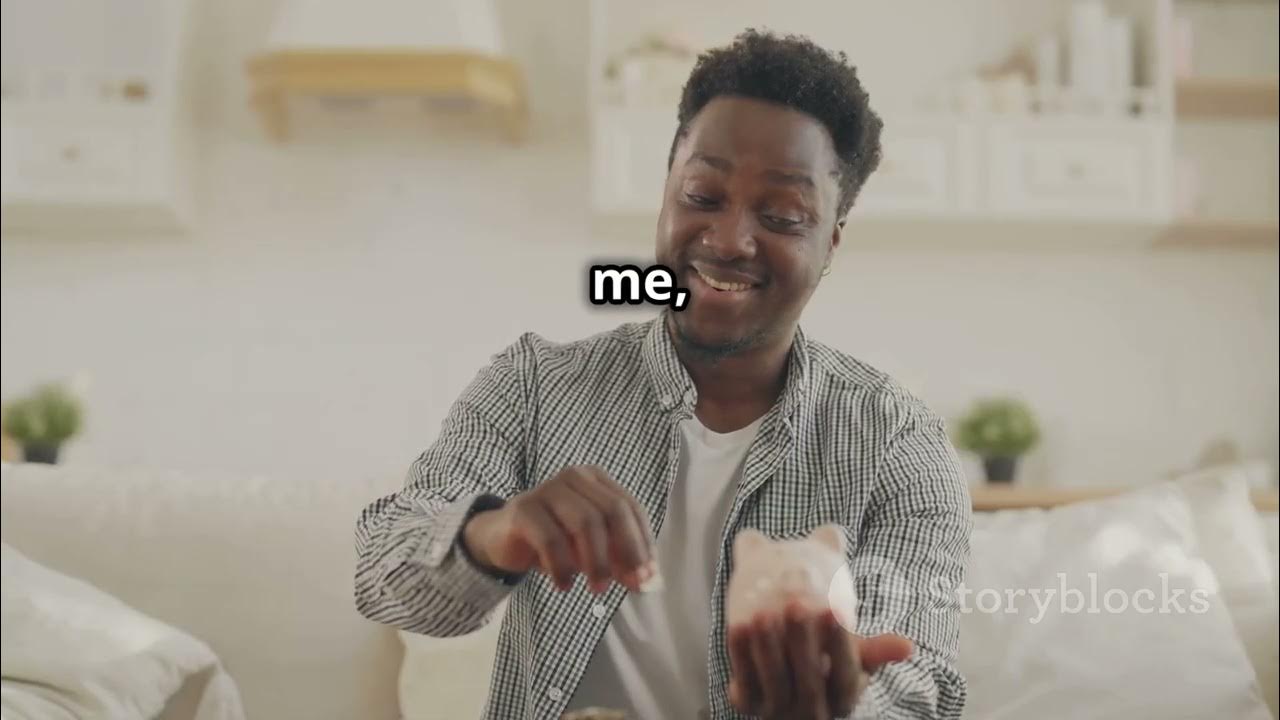5 Essential Financial Goals To Achieve Before 30
Summary
TLDRThis video emphasizes five crucial financial goals for those in their 20s: constructing a life blueprint to guide financial decisions, tracking expenses to save effectively, balancing saving and spending according to the 50/30/20 rule, maximizing credit scores to access better financial deals, and adopting a long-term investment strategy like the 'chess and rice' compounding model. It also touches on the importance of self-proofing over seeking external validation and suggests using tools like Empower Thrive to build credit responsibly.
Takeaways
- 🏡 Build your life blueprint: Reflect on what you truly enjoy and desire in life without considering financial constraints.
- 💰 Track your spending: Use a savings tracker to understand where your money goes and identify areas to cut back.
- 🌟 Find a balance: Strive for a midpoint between saving and spending that aligns with your life blueprint.
- 💹 Follow the 50/30/20 rule: Allocate 50% of your income to needs, 30% to wants, and 20% to savings for a balanced financial approach.
- 🏦 Maximize your credit score: Aim for a score above 750 to access the most favorable rates and benefits.
- 💳 Use credit responsibly: Only buy what you can pay off immediately and keep your credit utilization ratio below 30%.
- 📈 Adopt the chess and rice strategy: Invest and let your money compound over time for exponential growth.
- 🛡️ Proof yourself: Focus on self-validation and skill development to become indispensable and self-sustainable.
- 💼 Seek self-improvement: Continuously upskill to increase your value and command better compensation.
- 🔗 Empower your financial journey: Consider tools like Empower Thrive to help build credit and manage finances effectively.
Q & A
What is the significance of building a 'life blueprint' according to the speaker?
-Building a 'life blueprint' is essential because it helps guide financial decisions, ensuring that wealth-building efforts are aligned with personal happiness and life goals, rather than just saving for the sake of it.
Why did the speaker realize saving money alone was not enough?
-The speaker realized that saving money alone was not enough after being involved in a serious car accident, which made them reflect on how miserable they had become by focusing solely on saving without enjoying life or pursuing personal passions.
How can someone start building their own life blueprint?
-To build a life blueprint, one should reflect on what they enjoy in life without considering money or accessibility. This includes preferences like renting vs. owning a home, car preferences, and challenges they enjoy tackling.
What was the impact of using a savings tracker for the speaker?
-The savings tracker helped the speaker become more aware of where their money was going, revealing that they were spending $2,700 more than they thought. It also turned saving into a game, helping them cut back on unnecessary expenses.
What is the 50/30/20 rule in personal finance?
-The 50/30/20 rule suggests allocating 50% of income to needs (housing, food, utilities), 30% to wants (vacations, entertainment), and 20% to savings or investments. It offers flexibility but should be adjusted based on individual financial situations.
What mistake did the speaker’s cousin make with credit cards, and what were the consequences?
-The speaker's cousin made the mistake of not paying off credit card balances in full, which ruined his credit score. This led to higher interest rates on loans, costing him over $113,000 when trying to buy a house.
How can one responsibly build credit with credit cards?
-To build credit responsibly, one should only charge what they can pay off immediately, keep the credit utilization ratio below 30%, and always pay balances in full. Regularly checking credit reports is also recommended.
What is the chess and rice strategy, and how does it apply to personal finance?
-The chess and rice strategy emphasizes the power of compounding. Like doubling grains of rice on each square of a chessboard, investing money and letting it compound over time leads to exponential financial growth.
What investment strategy does the speaker recommend?
-The speaker recommends a passive fund investment strategy, particularly investing in index funds like FX or VOO that track the S&P 500, as it offers an easy, low-maintenance way to grow wealth over time.
What does the speaker mean by 'start proofing yourself'?
-'Start proofing yourself' refers to focusing on self-validation and upskilling rather than seeking approval from others. By becoming indispensable through new skills, one gains more confidence and financial security.
Outlines

このセクションは有料ユーザー限定です。 アクセスするには、アップグレードをお願いします。
今すぐアップグレードMindmap

このセクションは有料ユーザー限定です。 アクセスするには、アップグレードをお願いします。
今すぐアップグレードKeywords

このセクションは有料ユーザー限定です。 アクセスするには、アップグレードをお願いします。
今すぐアップグレードHighlights

このセクションは有料ユーザー限定です。 アクセスするには、アップグレードをお願いします。
今すぐアップグレードTranscripts

このセクションは有料ユーザー限定です。 アクセスするには、アップグレードをお願いします。
今すぐアップグレード5.0 / 5 (0 votes)






